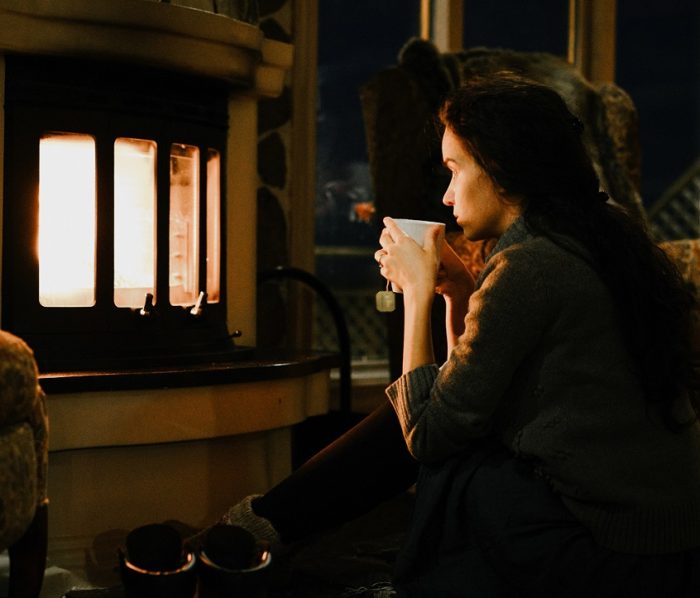We have all been put through a life gauntlet, fully punctuated by a pandemic.
And now we’re smack dab in the middle of the holiday season. Nothing like easing the pressure.
There’s also been added pressure as we try to resume normalcy in this era of life and death uncertainty. There are the conflicting reports that we can reunite and gather for the holidays…but oh no, now we can’t. Then there’s the Omicron variant. And we’re still not safe; there’s still the possibility of a plague spreading.
And while all of that is happening on the macro level, we are living our individual, personal micro-level lives full of unique pain, struggle, fear, death, and loss. Unique anxiety, uncertainty, dread, illness, and hopelessness. Unique struggling, present tense, as each of us—somehow, someway—is presently tense about life.
For some of us, we are haunted by a past of trauma and abuse. For some of us, we are just trying to survive the day, forget about thriving in it. For some of us, there is despair—not hope, not love, not joy—in our future. It seems unarguably bleak.
So, yes, let’s now place pressure on ourselves to celebrate with holiday lights, excessive consumption, and forced get-togethers. Honestly, many of us have zero capacity to do that.
I’ve been in plenty of situations, surrounded by plenty of people who have desired that I “turn that frown upside down.” I have been in rooms of people who would rather I comfort them with untrue, coerced happiness than have them be uncomfortable with my real, harsh, and inconvenient upset.
And that is especially true this time of year.
Because after everything we have been through, the pandemic and its forced isolation included, who are we to say no to celebrating?
Well, we are the ones who are currently struggling, the ones who are currently incapable of performing holiday joy and festivity on demand.
I love celebrations; don’t get me wrong. But where I have major issues, even during this fabulous holiday season we’re in now, is when the party, the meal, the gift-giving, the forced and fake-happy facades are more important than any one individual’s well-being.
The celebration as a whole is not greater than the sum of its hurting human parts. One person should not have to be sacrificed for the greater holiday event.
But others may not see it that way. Therefore, we need to go mercenary—rogue, even.
We need to, perhaps, go into hermit mode. And if we cannot celebrate, then we need to commemorate.
Commemoration is private.
When we think of celebration, we automatically think of a group of people, a party, a social occasion. We think of many people eating, drinking, laughing, and talking.
With the holidays, it’s further amplified. Now, we add singing, dancing, exchanging gifts, encircling a Christmas tree, lighting a Menorah, and being surrounded by a lot of stimulation. Everything is altered, lit up, noisy, highlighted, and screams, “Happy Holidays!” It’s enough to make some of us start construction on a bunker or dig a hole in the nearby snowbank.
Commemoration, however, is a different kind of word. It speaks to a more solitary and quiet occasion. Maybe lonely, maybe grieving. Maybe painful. Commemoration often denotes grief and death. What or whom did we lose? How are we doing with that?
What did you and I lose within this last year? Does our answer prompt us to choose, this year, to commemorate instead of celebrate during this season? Well, there is nothing wrong with doing so.
Commemoration is personal.
Celebration is often associated with a public gathering or a party; the assembling of people is put on blast. It might be at a community center, a theatre, a church or synagogue, or a friend or family member’s home. But it is often away from our home.
Or, if we find ourselves hosting some holiday event, in the name of celebration, we often feel we are being invaded. It doesn’t always feel like a friendly visit.
Commemoration, however, can possess a solitary quality to it. Yes, there are plenty of commemorative events that are quite public. Yet often the personal can get lost or obscured in that public treatment. And because of that, we can, perhaps, feel even lonelier and more hopeless. It becomes about the bells and whistles, the decorations, the event organization, the budget, the overwhelming components attached to the commemoration.
Maybe we need to be private and ruthlessly personal right now. Maybe we need to be alone. We can often get shamed for that solo status. People look at us and ask, “What’s wrong with you?”
Maybe something is wrong with us. Maybe it’s multiple things. Maybe it’s a death, a crisis, a loss, or a struggle so profound that being around other people hurts us.
There is nothing wrong with you and I choosing to forsake the stressful celebration for the more calming, quiet commemoration. If something means a great deal to us, let’s cherish it with the corresponding action that best exemplifies a life well-honored. Sometimes, that is being quiet, removed from the self-consciousness we’d encounter from other peoples’ eyes and expectations. We have the right to take care of ourselves with no one else around.
And, we have the right to heal, as much as we can heal right now.
Commemoration is honest.
Celebration often lies. It disguises itself as happy, as joyful, as carefree, as loving.
But looks can be deceiving. What is truly behind the celebration? What are the ulterior motives?
Social status?
Keeping up with the Jones’?
Money?
Fear?
Obligation?
Guilt?
Doesn’t exactly sound so celebratory, now, does it? But we try to reassure ourselves and others that “everything is fine,” when nothing could be further from the truth.
If you and I are left to commemorate to ourselves, we may stand a better chance of being honest with where we’re at and how we feel.
Who do we need to impress?
There can be a sacredness in the brutal honesty, far removed from prying eyes. Some of us need that right now. Healing is often a quiet, not a noisy, process. And it does its best work when done honestly. To quote the old saying, honesty is the best policy.
Therefore, heal in truth.
Commemoration is authentically us.
The private, the personal, the honest have one major thing in common: they all culminate to form us, our true selves. In commemoration, we have an opportunity to be fully ourselves. Without distraction, potential inauthenticity, noise, and pressure from others, we can connect with who we are.
Commemoration can be whatever we decide it to be. It goes beyond just the silent lighting of a candle. It is acknowledging the significance of the pain, the loss, the death, the struggle. It is self-care. It is a real moment and era in time for us. There is no one else’s feelings to protect. There is no public image at stake. There is no expectation from “loved ones.”
Just us, by ourselves.
Celebration cannot give us that as fully. For as wonderful as it may be, its focus is outward, not inward.
Maybe, right now, what we need the most is inward.
Maybe, celebration is the last thing we need.
No matter how we may choose to experience this holiday season, may we be truly ourselves in it—healing and experiencing the meaningful and the authentic.
~












Read 5 comments and reply